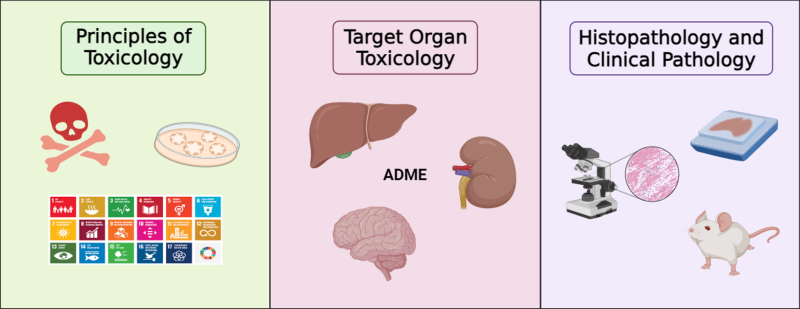
Toxicology: Semester 1 recap and survival guide
Hej hej! In this blog, I thought it would be fun to share my reflections on the rollercoaster ride that is the first semester in the ToxMaster. Let’s dive into the courses, the highlights, and some survival tips that might come in handy for future Tox students!
Principles of Toxicology
The semester started with the Principles of Toxicology course, an introduction to various topics that are going to be covered during the next two years. It’s a good start to the programme, with a reasonable workload. During this course there’s time to get to know your new classmates and explore the city while the weather is still nice (if you’re lucky!). The course includes traditional lectures, journal clubs, assignments, and a final exam.
My highlight from this course was definitely the overnight trip to Finnhamn in the Stockholm archipelago. It included time to get to know our lecturers/classmates, sauna followed by dips in the cold water, and walks in the beautiful surrounding nature.
Side note: bring (a lot of) mosquito repellent if you ever plan on going to the archipelago in late summer/early fall. I’ve never seen so many aggressive mosquitoes before! ?
Target Organ Toxicology
Then came Target Organ Toxicology (TOT), which lasted nearly 3 months. As you might have read from the previous tox digital ambassadors blog, this is a very demanding course. The topics are very interesting (in my opinion), but they’re varied and there’s a lot to cover. TOT includes module exams approximately every 2 weeks, covering the different organ systems and finishes off with a 2-day long open book home examination where you apply all the knowledge you’ve gained throughout the whole course. Although it’s quite intense, if you’re excited to learn more about the biology aspect of toxicology like me, you’ll love it. It was definitely one of my favorite courses I’ve ever had at KI.
A unique aspect/highlight of this course were the PBL (problem based learning) assignments. They’re basically flipped classrooms assignments, kind of like detective work ?️. We were split into groups and got a story to work with, looking at main exposures, toxicity mechanisms and outcomes. Then, we put together presentations and/or reports and discussed with tutors that are experts in the field.
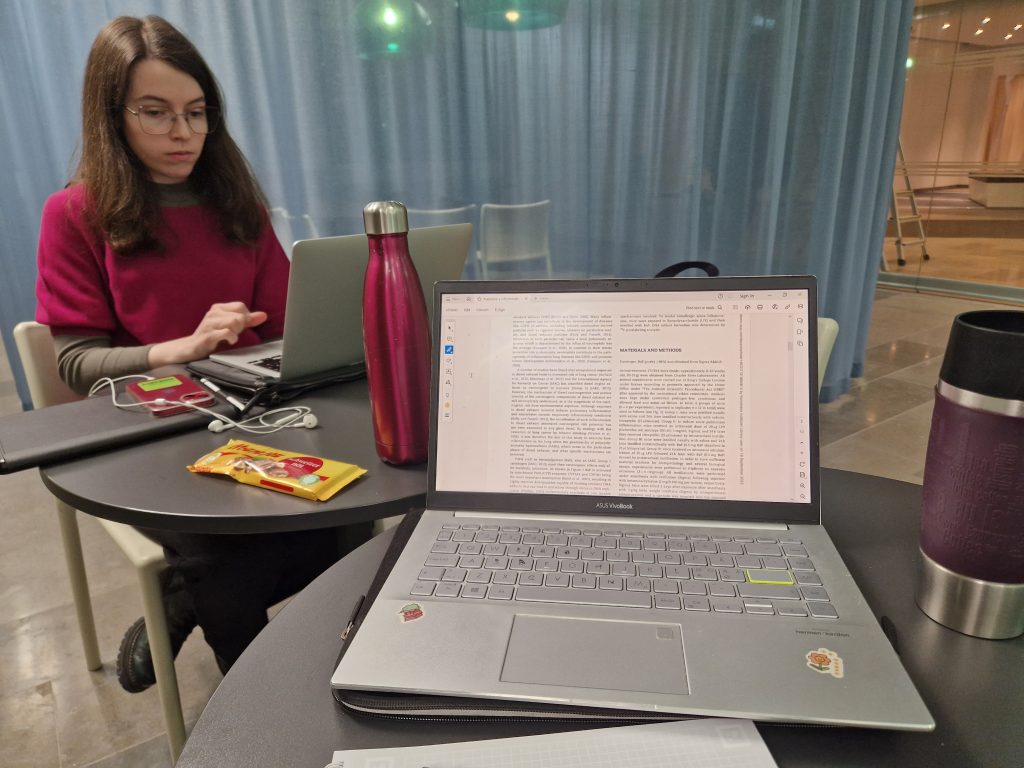
and catch up with friends from my bachelor’s programme as well ❤️
Photo credits: Mina Ristovska
Histopathology and Clinical Pathology
The final course, Histopathology and Clinical Pathology, includes a few lectures and an assignment to do during Christmas/New Year. Unfortunately, there’s no official time off scheduled for the holidays between the semesters in Swedish universities. The course ended with a presentation and an exam within the first two weeks of the new year.
The timing over the holidays might feel a bit intense, but the workload is very manageable. The assignment also gives many self-study days, so everyone has the chance to work from wherever they want. Many of us took this opportunity to go home for the holidays, which I think was the highlight after a very long semester!
Survival Tips
Tip #1: Prioritise your well-being. Before anything else, I think my number 1 survival tip would be to take care of yourself and your well-being. Unfortunately, the days start getting much shorter very quickly in the second half of the first semester. Experiencing this darkness and cold weather for the first time, in combination with a heavy course workload, can be really difficult for some people. That’s why it’s extra important to prioritise sleep, stay active, eat as healthy as possible (emphasis on vitamin D!) and spend time with friends. Easier said than done, but KI also has resources that can help with this!
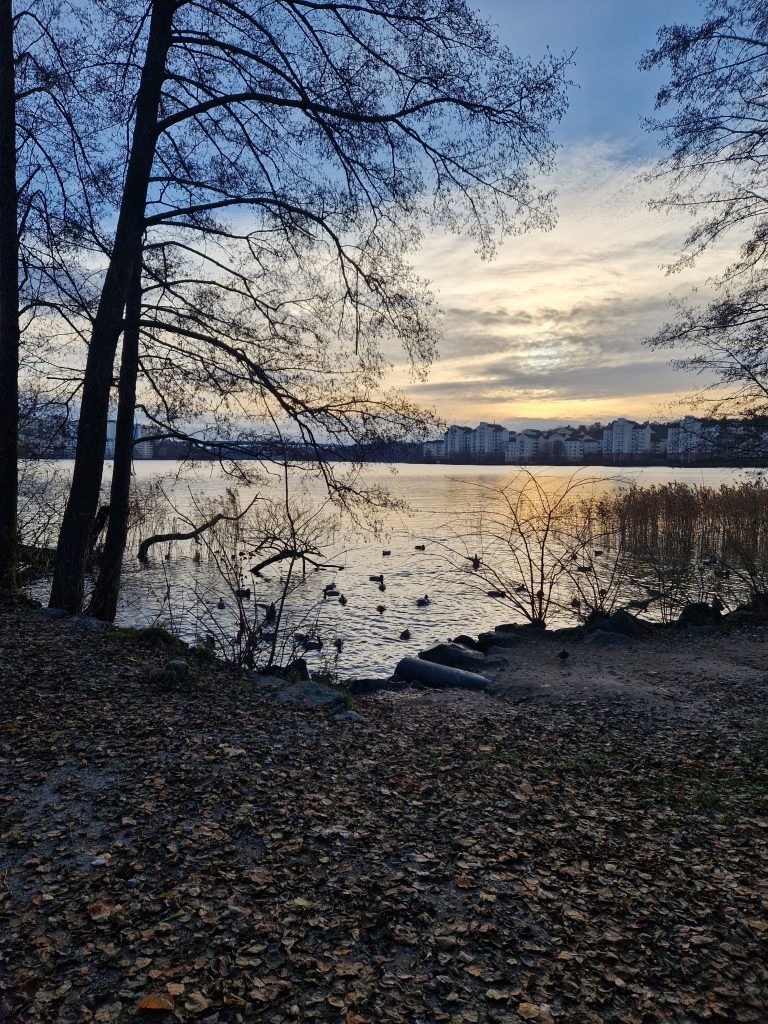
Photo credits: Mina Ristovska
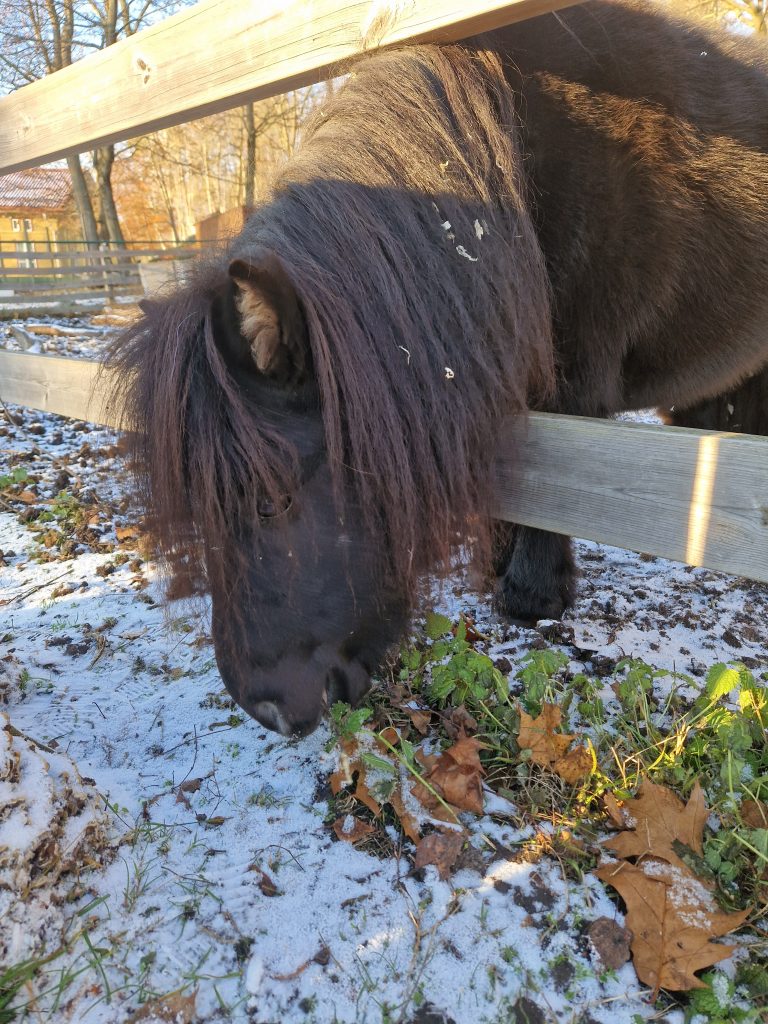
Photo credits: Mina Ristovska
Tip #2: Make an effort to balance studies and leisure. I highly recommend going to all lectures and workshops (even the non-mandatory ones!). Especially for TOT, since the course is so high-paced, there won’t be much time to catch up at home. Since the first semester is pretty packed, it can feel like you need to spend all your time studying. I’ve definitely been guilty of doing this and postponing other things in my life as a consequence. But in reality, seeing friends, visiting museums that you think look interesting, or reading that book that’s been on your shelf for the past year might be exactly what you need to be more productive in the long run.
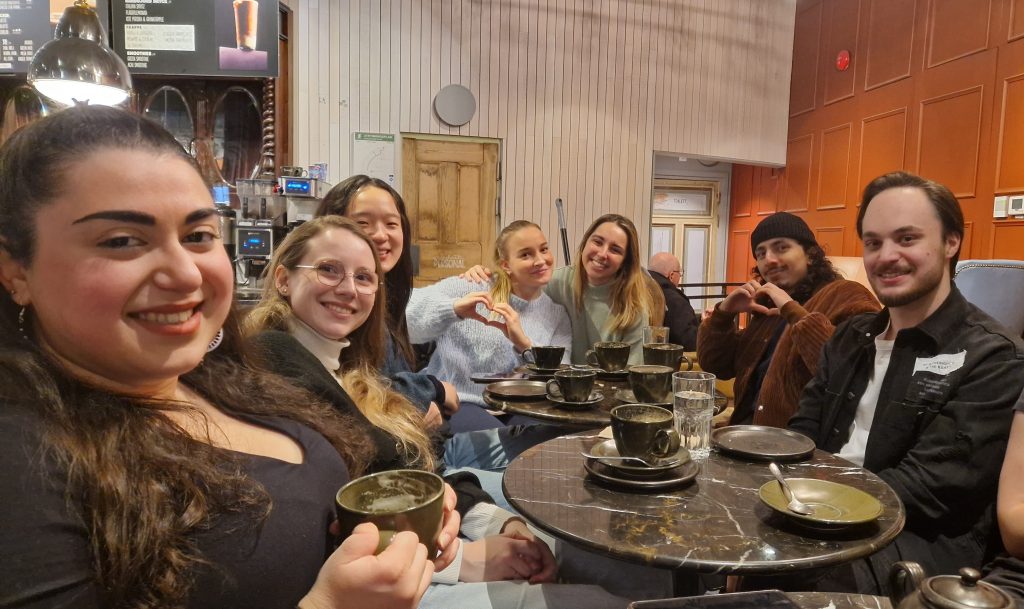
Photo credits: Mina Ristovska
Tip #3: Give honest feedback and constructive criticism on the courses and workload. Course evaluation surveys get sent out to students at the end of each course. The professors also try to keep contact with the student representatives and schedule course councils to discuss the ongoing courses. Sometimes, these discussions can lead to immediate changes in the course (if possible) – so it’s always worth it to voice your opinions and concerns!
Looking Ahead
To be completely honest, as much as I had fun during the first semester, I was slightly exhausted by December. The cold weather and darkness combined with the constant examinations, many lectures and group works definitely wore me out. Now I’m finally feeling more rested and energetic, ready to take on the second half of the academic year. The second semester has officially started, kicking it off with a module on biostatistics and a course about laboratory animal science. What I’m really looking forward to this semester is doing lab practicals, since I haven’t been in a lab since the summer.
Thank you so much for reading and see you in the next blog!

Mina - Toxicology
Hej! My name is Mina and I’m Macedonian/Swedish. Currently I'm studying the Master’s Programme in Toxicology. I chose to study at KI because of its proximity to research, and I also did my Bachelor’s in Biomedicine here. I’m very excited to share all my tips and more about the student life in Stockholm and at KI! Outside of my studies, I love socializing and exploring new places around Stockholm, but also cozy days at home with a good book or movie, especially in the colder months.

0 comments